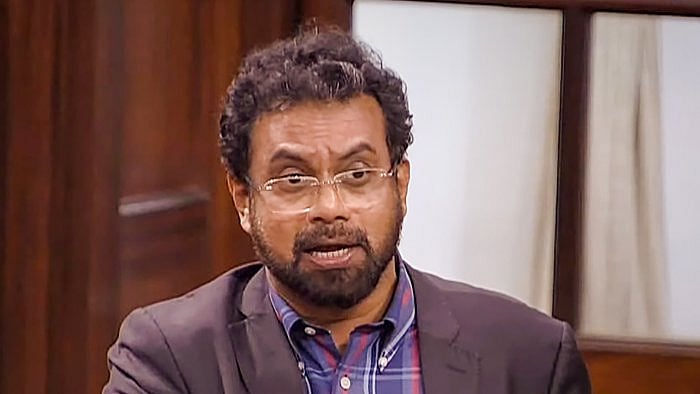
While the Constitution imposes reasonable restrictions on exercise of the right to free speech, it so happens, especially in recent times, that these restrictions find no limits. That is the inference to be drawn from the summons issued by the Chairman of the Rajya Sabha, Jagdeep Dhankhar, to CPM MP John Brittas, seeking an explanation on an article he had written.
The MP from Kerala had made critical remarks about a comment of Union Home Minister Amit Shah in the article he wrote for a newspaper on February 20. Shah had said in a speech in Mangaluru that only the BJP could protect Karnataka as “there is Kerala near you.” Brittas, in his article, criticised Shah’s comment which insinuated that Kerala could pose a threat to the safety of Karnataka. A BJP office-bearer wrote to Dhankhar seeking action against Brittas for his “seditious” criticism of Shah.
Also Read | Opposition members up in arms over summons to CPI(M) MP John Brittas by Jagdeep Dhankar
It was well within the rights of Brittas to criticise Amit Shah over his statement. It is surprising that Dhankar, who holds a constitutional position and has the responsibility to protect the rights of citizens, has pursued the matter and sought an explanation from Brittas.
The MP met Dhankhar and briefed him on the issue. It is not known what power the Rajya Sabha Chairman has to take action on a complaint about the conduct of a member outside the House and to seek an explanation over it. An examination of the entire issue would show that there was more impropriety in Shah’s statement, a dog-whistle for his followers, than any illegality in Brittas’ criticism of it. It is outrageous that someone found the MP’s article seditious, and surprising that the Rajya Sabha Chairman entertained it and acted on it. This is a wrong precedent at a time when many other wrong precedents are being set.
The right to freedom of speech is the matter at stake here, and the incident is an example of the newer ways being sought to restrain it. The Rajya Sabha Chairman has the responsibility to protect the rights of the members of the House. Whatever the decision he may take in the matter, by raising questions about Brittas’ article and seeking an explanation from him, Dhankhar has taken a narrow and limited view of those rights.
He has, with that, also invited the Opposition’s criticism that it is a political view. Members of Parliament have found that they are unable to criticise the government and its actions and policies inside the House. Now they are being questioned over views expressed outside it. If MPs cannot exercise their freedom of expression inside and outside the House, can the ordinary citizen do so?
